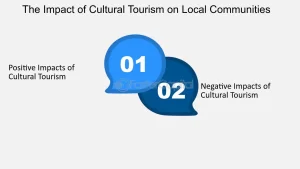Climate change is fundamentally reshaping the world, with effects extending across diverse cultures globally, influencing cultural practices and community traditions.
Indigenous communities are experiencing significant threats to their traditional ways of life, such as traditional methods and rituals, while modern societies grapple with the repercussions of their practices. Understanding the interplay between these different cultural experiences, social practices, and climate change is of paramount importance.
This discussion aims to examine how cultural practices both contribute to climate change and provide valuable insights for building resilience.
It will explore the roles of traditional ecological knowledge, sustainable resource management, community resilience, and community-driven adaptations in fostering a more hopeful future in the face of these challenges.
Furthermore, it will highlight both the opportunities and obstacles associated with integrating cultural wisdom, ecological adaptation, and climate resilience into climate action initiatives.
The Impact of Climate Change on Different Cultures
.jpg_00.jpeg)
The impact of climate change on various cultures is profound and multifaceted, influencing aspects ranging from traditional knowledge to resource management and social cohesion.
As climate change persists in disrupting weather patterns and ecosystems, communities around the globe encounter challenges that threaten their cultural identity and heritage.
Indigenous practices, which frequently embody a deep connection to the land, local customs, and place-based knowledge, are particularly vulnerable; however, they also possess valuable insights into resilience, adaptation strategies, and coping mechanisms.
Therefore, community engagement in climate action is essential for promoting sustainability, environmental awareness, and ensuring that cultural narratives and collective memory are preserved in the face of environmental change.
How Does Climate Change Affect Indigenous Cultures?
Climate change has a profound impact on indigenous cultures by disrupting traditional practices, social networks, intergenerational knowledge, and cultural identity, thereby increasing vulnerability and contributing to a loss of cultural heritage.
Indigenous peoples often depend on specific ecological practices that have supported their way of life for generations, rendering them particularly sensitive to environmental changes. As the effects of climate change intensify, these communities encounter significant challenges related to food security, resource management, and cultural continuity, which can undermine their inherent resilience and adaptive capacity.
For example, in the Arctic, indigenous communities are observing shifting wildlife migration patterns that affect subsistence hunting practices and resource management. In response, they are adapting their seasonal activities by integrating traditional knowledge with modern scientific methods to monitor ecological changes.
Similarly, in the Amazon, forest-dwelling tribes utilize sustainable land management practices, drawing upon centuries of wisdom to maintain biodiversity, protect sacred sites, and ensure environmental sustainability. This fusion of ancestral knowledge with contemporary environmental strategies not only enhances their adaptability to changing climatic conditions but also plays a crucial role in preserving their cultural identity, social cohesion, and cultural preservation in the face of adversity.
How Do Different Cultural Practices Contribute to Climate Change?
Different cultural practices can both mitigate and exacerbate climate change, as they influence behaviors, resource allocation, community traditions, and environmental practices that affect the environment.
While many local customs inherently promote sustainability and environmental stewardship, certain agricultural practices, rituals, and ceremonies may inadvertently contribute to ecological footprints and climate change. Understanding these dynamics is essential for developing effective mitigation strategies that align with cultural narratives, environmental policies, and foster collective action.
For example, some indigenous communities have established long-standing traditions of fire management that effectively prevent larger wildfires, illustrating a positive cultural practice that enhances biodiversity and reduces carbon emissions. Conversely, certain modern agricultural methods, driven by global demand, can result in deforestation and soil degradation, exemplifying a negative cultural influence.
Therefore, integrating environmental education that resonates with specific cultural contexts not only encourages sustainable behaviors but also enhances awareness of local ecological issues. Engaging communities in intercultural dialogue that respects their cultural values can serve as a catalyst for the behavioral changes necessary to combat climate change and promote practices that reinforce environmental resilience and social responsibility.
The Role of Cultural Practices in Coping with Climate Change
Cultural practices are integral to addressing climate change, as they provide distinctive strategies that enhance community resilience and adaptive capacity.
These practices frequently utilize traditional knowledge, local customs, and place-based knowledge, empowering communities to respond effectively to environmental challenges.
By incorporating cultural heritage into climate adaptation planning, communities can cultivate a sense of belonging, social cohesion, and social equity, while simultaneously promoting environmental justice and sustainability.
1. Traditional Ecological Knowledge
Traditional ecological knowledge (TEK) serves as a critical resource for climate adaptation, as it encompasses the collective wisdom, intergenerational knowledge, and practices developed by communities over generations in relation to their environment.
TEK includes valuable insights into local biodiversity, resource management, and agricultural practices that are essential for promoting sustainability and resilience in the face of climate change. By recognizing and incorporating TEK into contemporary climate policies, communities can significantly enhance their adaptive capacity and contribute to biodiversity conservation.
For instance, indigenous practices such as crop rotation and companion planting not only optimize agricultural yields but also support soil health and overall ecosystem resilience.
TEK enables the sharing of knowledge across generations, allowing younger members of the community to learn the sustainable practices employed by their ancestors, thereby fostering a deeper connection to the land.
This acknowledgment of intergenerational knowledge not only preserves cultural heritage but also strengthens community networks, social capital, and coping strategies, equipping them to better address climate-induced challenges, such as extreme weather events and shifting biodiversity patterns.
Ultimately, the integration of TEK into resource management strategies empowers communities to make informed decisions that protect both their livelihoods and the environment.
2. Sustainable Resource Management
.jpg_01.jpeg)
Sustainable resource management plays a critical role in addressing climate change by enabling communities to utilize their resources responsibly while ensuring long-term ecological integrity. Cultural practices that promote environmental stewardship and cooperative management can significantly enhance community resilience to the impacts of climate change.
Through the implementation of eco-friendly practices and participatory approaches, communities can effectively manage their resources and contribute to climate equity and justice.
This holistic approach not only reinforces traditional knowledge but also cultivates a sense of ownership among stakeholders, encouraging collaborative efforts. For example, various Indigenous communities have successfully integrated their ancestral practices with modern techniques, resulting in positive outcomes such as revitalized ecosystems, improved food security, and sustainable livelihoods.
Successful case studies from regions that engage in agroforestry, traditional fishing methods, and sustainable forestry provide tangible evidence of how the fusion of cultural wisdom with contemporary resource management can enhance climate resilience and environmental stewardship.
When stakeholders are actively involved in decision-making processes, the strategies developed are often more pertinent and effective, underscoring the importance of community engagement in advancing sustainable practices.
3. Community Resilience and Adaptation
Community resilience and adaptation are crucial for thriving in the face of the challenges presented by climate change, with cultural heritage playing a significant role in reinforcing these elements.
By promoting social cohesion and empowering grassroots movements, communities can cultivate innovative practices that facilitate climate adaptation and enhance overall resilience. The integration of cultural diversity, local knowledge, and adaptation strategies into adaptation planning is essential for achieving more effective and sustainable outcomes.
For example, traditional farming practices that have been transmitted through generations can offer valuable insights into sustainable land management, assisting communities in adapting to changing weather patterns.
Social networks within these communities not only foster cooperation but also serve as platforms for sharing resources and knowledge. Grassroots movements frequently emerge as vital forces for collaborative governance, uniting diverse voices to advocate for policies that reflect local realities.
By capitalizing on cultural heritage and nurturing strong community ties, these groups can drive impactful collective action that addresses not only the symptoms of climate vulnerability but also its underlying causes.
Examples of Cultural Practices in Coping with Climate Change
Numerous cultural practices, such as traditional methods and rituals, function as effective coping strategies in addressing climate change, demonstrating the resilience and adaptive capacity of various communities.
These practices frequently utilize traditional knowledge and local customs, thereby contributing to biodiversity conservation, sustainable resource management, and enhancing community resilience.
By examining specific examples, it is possible to gain valuable insights into the role of cultural expressions in mitigating the impacts of climate change, preserving cultural heritage, and fostering cultural diversity.
1. Indigenous Fire Management Practices
Indigenous fire management practices, grounded in indigenous knowledge, constitute a sustainable strategy for land management that effectively adapts to climate change while restoring ecological balance. Grounded in traditional knowledge, these practices involve the strategic application of controlled burns to reduce fuel loads, enhance biodiversity, and promote resilience within ecosystems.
Involving local communities in these practices cultivates a sense of ownership and environmental stewardship, thereby contributing to climate adaptation efforts and climate resilience.
Integrating indigenous methodologies into contemporary environmental policies presents a significant opportunity to honor and leverage traditional ecological knowledge, which has been refined over generations. This approach not only empowers communities but also fosters a collaborative framework for fire management, emphasizing the importance of cultural perspectives and cultural values within modern scientific discourse.
The ecological advantages of these practices are substantial, as they help mitigate the effects of wildfires, maintain healthy habitats, and support the recovery of native species. Ultimately, merging these time-honored techniques with current strategies can yield holistic approaches that enhance ecosystem health and resilience in the face of evolving climate challenges.
2. Agroforestry and Crop Diversity
Agroforestry and crop diversity are critical cultural practices that significantly enhance climate resilience by promoting sustainable agriculture and the conservation of biodiversity. By integrating trees and shrubs into agricultural systems, communities can improve soil health, increase water retention, and reduce vulnerability to climate extremes.
These traditional practices, often informed by local customs and knowledge, contribute to food security and community development while also mitigating the impacts of climate change.
Such systems are particularly prominent in regions like Southeast Asia, where farmers cultivate rice paddies in conjunction with native tree species, fostering a harmonious balance that supports wildlife and enhances microclimates. Similarly, in various parts of Africa, communities have adopted intercropping strategies that combine staple crops such as maize with legumes, thereby enhancing soil nutrients and mitigating pest outbreaks, illustrating sustainable practices and sustainable livelihoods.
These practices not only stabilize yields in the face of adverse weather conditions but also promote resilience through the preservation of indigenous farming techniques.
As these examples demonstrate, leveraging traditional knowledge in conjunction with modern agricultural strategies is essential for developing effective approaches that align with sustainability goals and improve food security in an increasingly dynamic climate.
3. Traditional Water Management Systems
.jpg_10.jpeg)
Traditional water management systems exemplify the resourcefulness of communities in adapting to climate challenges while preserving their cultural heritage. These systems, often rooted in local customs and practices, effectively manage water resources, ensuring access to clean water, enhancing agricultural productivity, and promoting ecological balance.
By integrating traditional knowledge with modern techniques, communities can improve their adaptive capacity and resilience to the impacts of climate change.
For instance, the ancient practice of rainwater harvesting in arid regions illustrates a sustainable approach to water conservation, allowing for the collection and storage of runoff for future use. Similarly, the terraces developed by Andean cultures not only prevent soil erosion but also enable efficient irrigation, which is critical for crop survival in variable climates.
The implementation of Qanat systems in Middle Eastern communities highlights the significance of subterranean water channels in sustaining agriculture in arid areas, showcasing traditional water management strategies and resource management.
These practices underscore the value of local wisdom and serve as a foundation for the development of contemporary water management strategies that prioritize sustainability, community involvement, and climate resilience.
Challenges and Opportunities for Integrating Cultural Practices into Climate Change Mitigation and Adaptation
The integration of cultural practices into climate change mitigation and adaptation strategies presents both challenges and opportunities that must be addressed to achieve effective outcomes.
Although cultural practices can enhance resilience and promote sustainability, their recognition and support within policy development frequently encounter obstacles, such as a lack of awareness and the presence of conflicting modern practices.
By promoting collaborative governance and engaging stakeholders, communities can effectively navigate these challenges and leverage cultural practices as significant tools for climate action and environmental justice.
1. Lack of Recognition and Support for Cultural Practices
The lack of recognition and support for cultural practices in climate adaptation presents considerable challenges for communities working to enhance their resilience. When traditional knowledge and practices are not adequately acknowledged, these communities may face difficulties in securing essential resources and support for initiatives aimed at promoting sustainability and ecological stewardship.
This deficiency in recognition can impede effective policy development and restrict opportunities for meaningful community engagement in climate action.
Furthermore, the diminishing respect for these integral cultural practices can exacerbate existing socio-economic disparities and undermine communal ties, which are often crucial for collective action in addressing climate challenges.
To address this issue, the implementation of educational programs that emphasize the significance of traditional environmental knowledge could promote a greater understanding and appreciation among policymakers and the wider public. Additionally, advocacy efforts should aim to influence policy changes that integrate these practices into formal climate strategies, ensuring that community voices are actively involved in shaping resilient and inclusive responses to climate change.
2. Conflicts with Modern Development and Conservation Efforts
Conflicts between contemporary development initiatives and conservation efforts can significantly undermine the effectiveness of cultural practices in addressing climate change. Frequently, modern approaches overlook the knowledge and values inherent in traditional practices, resulting in a loss of cultural heritage and heightened vulnerability for communities.
It is imperative to balance economic development with environmental justice and respect for cultural identity in order to foster sustainable climate adaptation.
For example, in regions where indigenous farming methods have been practiced for generations, the introduction of industrial agriculture can displace local farmers and diminish traditional crop varieties. This not only jeopardizes food security but also threatens the unique cultural identities associated with these agricultural practices, highlighting the need for cultural preservation.
Moreover, urbanization projects that do not incorporate local customs can disrupt social cohesion, as observed in many major cities. Integrating traditional knowledge into modern development frameworks not only aids in preserving these cultural practices but also enhances the resilience of communities against the impacts of climate change, thereby ensuring a more sustainable future for all.
3. Potential for Collaborative Solutions and Knowledge Exchange
The potential for collaborative solutions and knowledge exchange between communities and stakeholders can significantly enhance the incorporation of cultural practices into climate adaptation strategies. By promoting participatory approaches that respect and value traditional knowledge, communities can engage in substantive dialogue and develop innovative practices that are both culturally relevant and effective, fostering intercultural dialogue and cross-cultural collaboration.
Such collaboration not only bolsters community resilience but also deepens the understanding of the cultural narratives that inform climate action.
For example, successful partnerships between indigenous groups and local governments have facilitated the preservation of traditional agricultural techniques that are well-adapted to changing climatic conditions. These relationships underscore the importance of considering community perspectives and integrating their insights into policy-making processes.
Environmental organizations that emphasize collaborative frameworks have found that inclusive strategies lead to greater success in implementing sustainable practices. This bridging of knowledge across various sectors not only accelerates adaptation efforts but also fosters a sense of ownership and commitment among stakeholders, ultimately resulting in more effective climate action.
Frequently Asked Questions
.jpg_11.jpeg)
What are cultural practices and how do they relate to climate change?
Cultural practices refer to the customs, traditions, beliefs, and behaviors of a particular group of people. These practices are often adapted to the environmental conditions of a specific region and can play a crucial role in how communities cope with the impacts of climate change.
How do cultural practices help in coping with climate change?
Cultural practices can help in coping with climate change by providing knowledge and techniques for adapting to changing environmental conditions. For example, indigenous communities may have traditional farming techniques that are better suited to drought or flood-prone regions, showcasing their indigenous knowledge and sustainable practices. These traditional methods contribute to cultural heritage, environmental awareness, and ecological adaptation.
Can cultural practices be used to mitigate the effects of climate change?
Yes, cultural practices can also be used to mitigate the effects of climate change. For instance, traditional land management practices, such as rotational grazing or agroforestry, can help in reducing carbon emissions and conserving biodiversity. These agricultural practices are part of broader mitigation strategies that emphasize environmental sustainability and resource management.
How do cultural practices contribute to resilience in the face of climate change?
Cultural practices promote resilience by strengthening social bonds within communities and fostering a sense of belonging. This can help people cope with the stress and trauma caused by climate change, enhancing their adaptive capacity and collective memory. By building community resilience and climate resilience, these social practices contribute to greater psychological resilience.
Are there any challenges in incorporating traditional cultural practices into climate change adaptation and mitigation efforts?
Yes, there can be challenges in incorporating traditional cultural practices into climate change efforts. These may include lack of recognition and support from governments and other institutions, cultural erosion and loss of traditional ecological knowledge, and conflicts with modern development practices. Addressing these challenges requires a commitment to cultural preservation and engaging in intercultural dialogue.
How can we promote the integration of cultural practices in climate change strategies?
We can promote the integration of cultural practices in climate change strategies by involving local communities in decision-making processes, providing avenues for the transfer of traditional and intergenerational knowledge, and recognizing and valuing the contributions of cultural practices in building resilience to climate change. Encouraging community participation and environmental stewardship, along with cross-cultural collaboration, can enhance sustainability education and climate adaptation frameworks.

My name is Bruno, I have been a writer for 5 years and I work with website creation. My goal is to provide true information to readers. In fact, on this site I write about cultures and traditions, which I have been passionate about since childhood.




